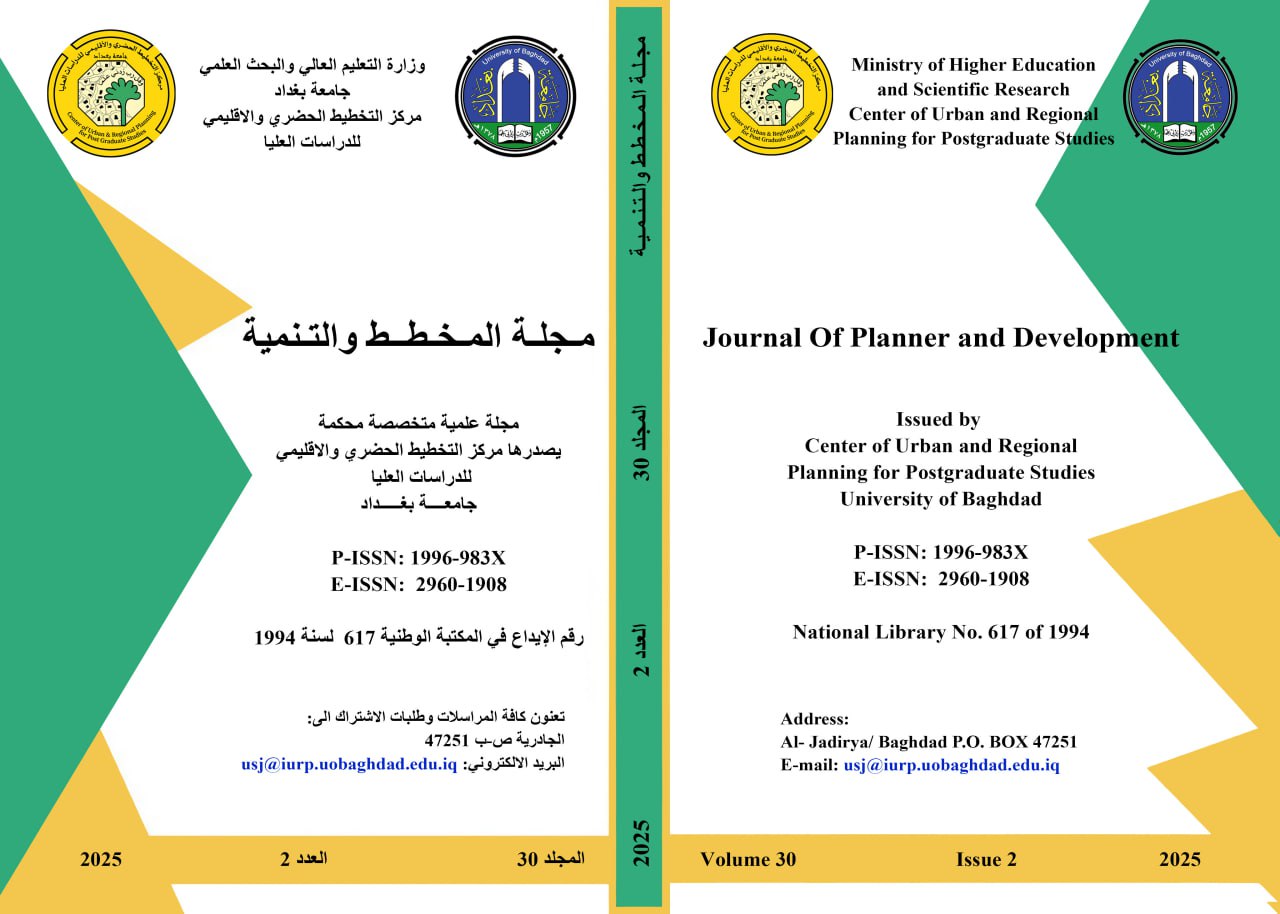Application of Feng Shui Philosophy and Space Syntax Analysis to Improve the Quality of Urban Spaces A Case Study of Al-Ghazaliya Area in Baghdad
Keywords:
Feng Shui, Space Syntax, Quality of Urban Spaces, Energy Balance, Social InteractionAbstract
This research studies the impact of Feng Shui principles and place energy on public urban spaces, focusing on analyzing urban spaces in Al-Ghazaliya area in Baghdad city using spatial analysis techniques and DepthmapX 0.8.0 program. The research aims to link the results with the concepts of Feng Shui philosophy to improve the quality of life and enhance social interaction in the urban environment, as the research focuses on understanding the dynamics of the urban network through key indicators such as connectivity, integration, mean depth, and choice, in addition to analyzing the energy impact of these indicators according to the concepts of energy balance in Feng Shui. The research problem is that urban spaces in modern cities, including Al-Ghazaliya area in Baghdad, suffer from weak social interaction and low quality of life due to the design of public spaces that impede the flow of energy "Chi". Accordingly, the research hypothesis was formulated that it is possible to improve the quality of public spaces and increase social interaction in Al-Ghazaliya area in Baghdad by applying spatial analysis techniques and Feng Shui philosophy. Achieving energy balance in urban network design contributes to enhancing the flow of "Chi" energy. Therefore, the research aims at two main aspects: the first is to apply the Feng Shui philosophy to understand the impact of "Chi" energy balance on the quality of life in public spaces, and the second is to analyze urban spaces in Al-Ghazaliya area using space analysis techniques (Space Syntax) to evaluate the efficiency of the urban network. The results showed noticeable differences in the efficiency of the urban network, as some areas enjoy positive energy flow that enhances social interaction, while other areas suffer from energy stagnation due to weak communication and integration and high average depth. The results also emphasized the importance of improving the connection of peripheral areas to vital centers to reduce energy isolation and enhance the balance between different spaces. One of the most prominent conclusions is that integrating space analysis with Feng Shui philosophy is an effective approach to analyzing and improving the design of urban spaces, which contributes to raising the quality of life and enhancing urban sustainability. The most important recommendation reached by the research is the need to improve the design of the urban network by enhancing integration and communication between different spaces, while introducing natural and aesthetic elements such as plants and water bodies to support the flow of "Chi" energy and achieve energy balance.



